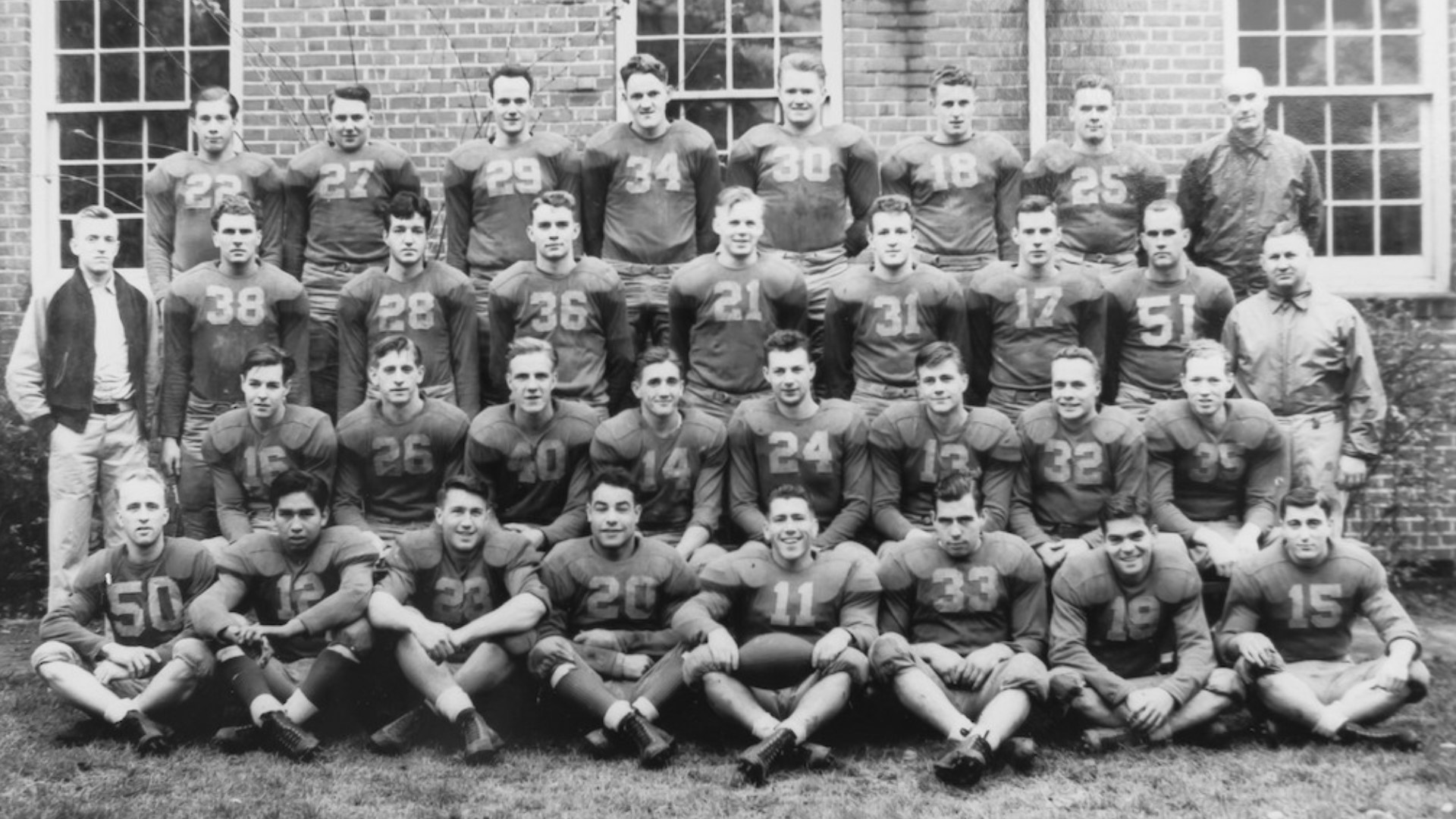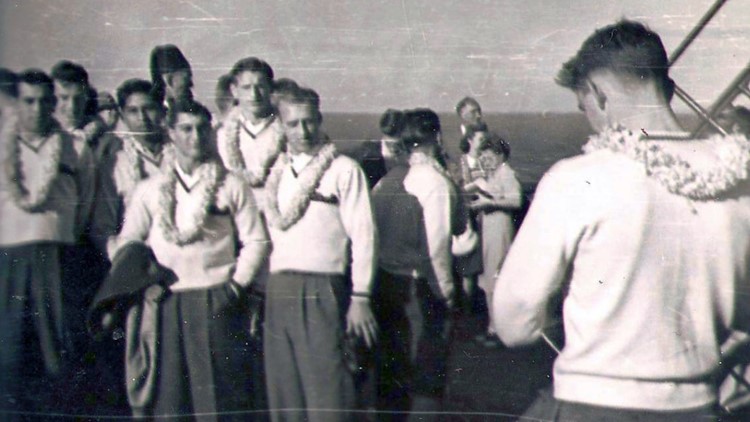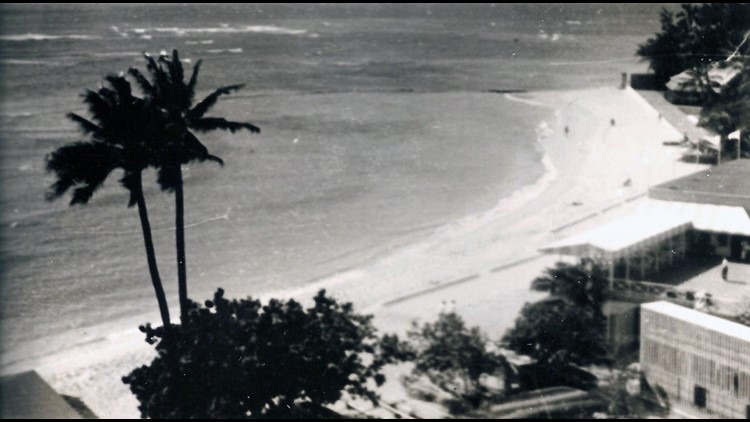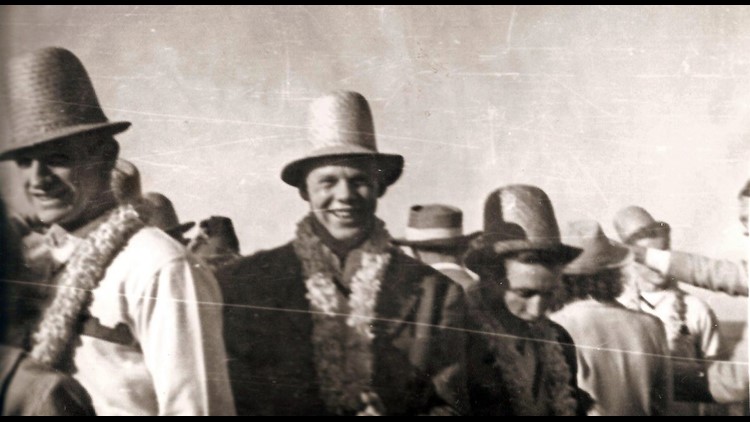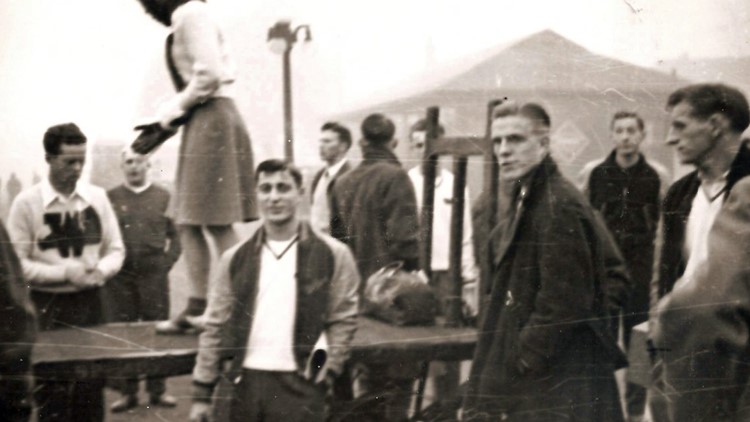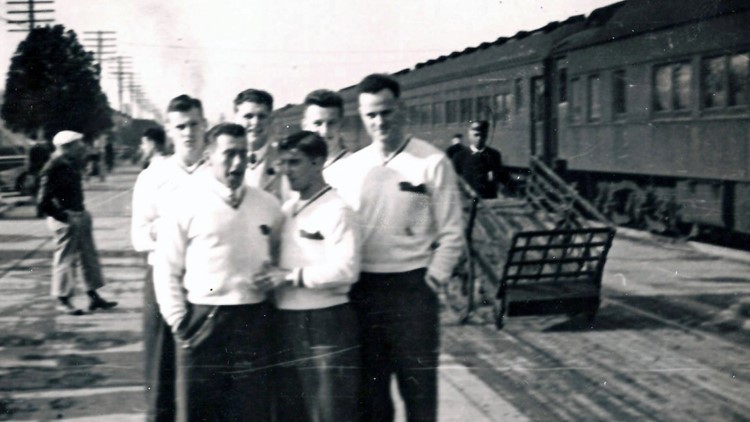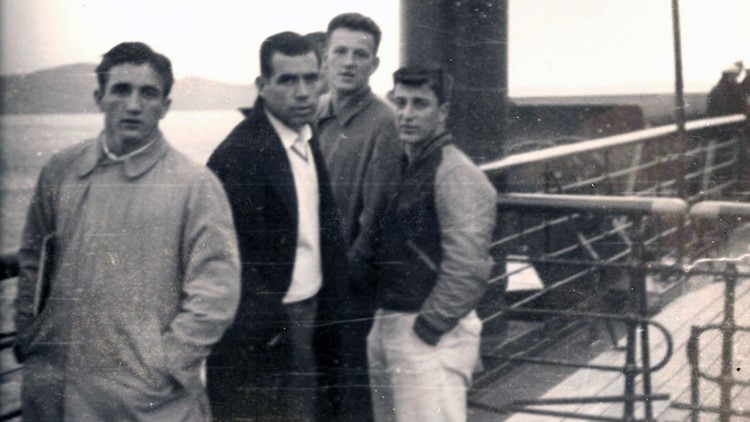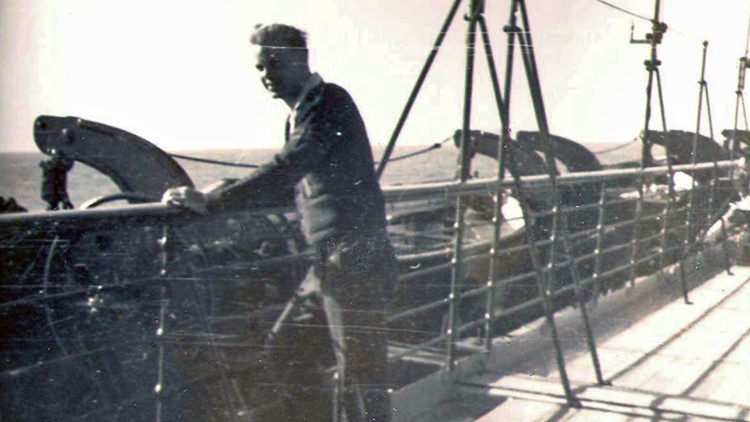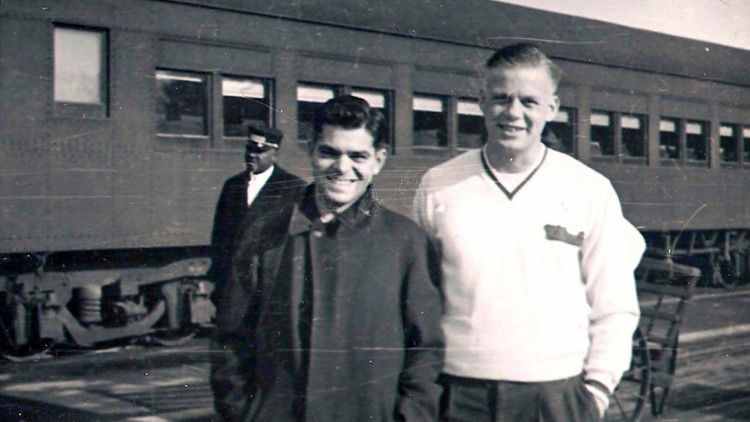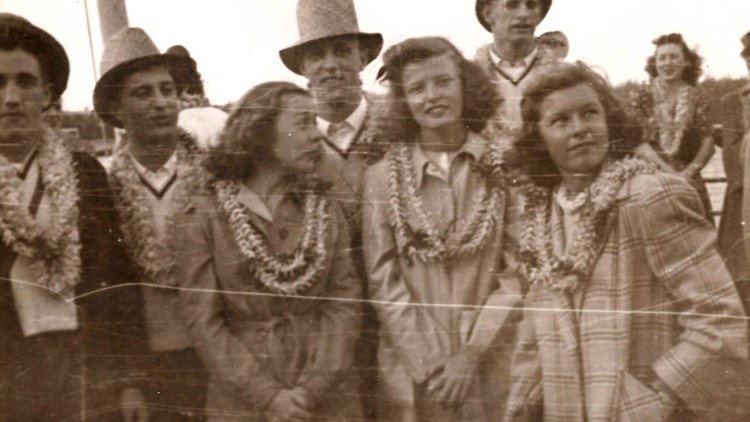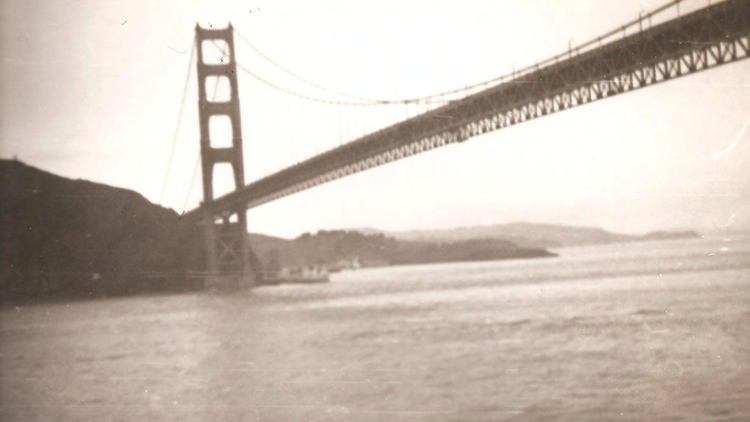PORTLAND, Ore. — On the morning of Dec. 7, 1941, the Japanese military attacked the U.S. naval base at Pearl Harbor. The attack killed more than 2,400 Americans, left more than 1,000 wounded, and decimated the U.S. Navy's pacific fleet.
As news of the attack reached the mainland, Oregonians held their breath. Some of their own were on the island; a local college football team was caught in the chaos.
Just days earlier, the 1941 Willamette Bearcats had arrived in Honolulu. Traveling more than 2,000 miles by sea, the team was in town for the Shrine Bowl, a series of exhibition games in America's normally peaceful paradise.
Having won the Northwest Conference title back home, the Bearcats were eager to test themselves against tough competition. They were scheduled to play the Spartans of San Jose State and the University of Hawaii Rainbow Warriors.
Quarterback Ken Jacobson brought his camera along, documenting some of the lighter moments from the team's trip. The photos, which have been donated to the Willamette University archives, show a laid-back, festive atmosphere — players in Hawaiian leis, the team's hotel overlooking iconic Waikiki Beach. It was the perfect end to a successful season.
1941 Willamette Bearcats in Hawaii during attack on Pearl Harbor
On Dec. 6, the Bearcats lost to the University of Hawaii by a score of 20-6. It would be the only game played on the trip.
The next morning, all hell broke loose. As the team was preparing for a day of sightseeing, the sky filled with thick, black smoke. Rumors of an attack at the nearby naval base spread across the island.

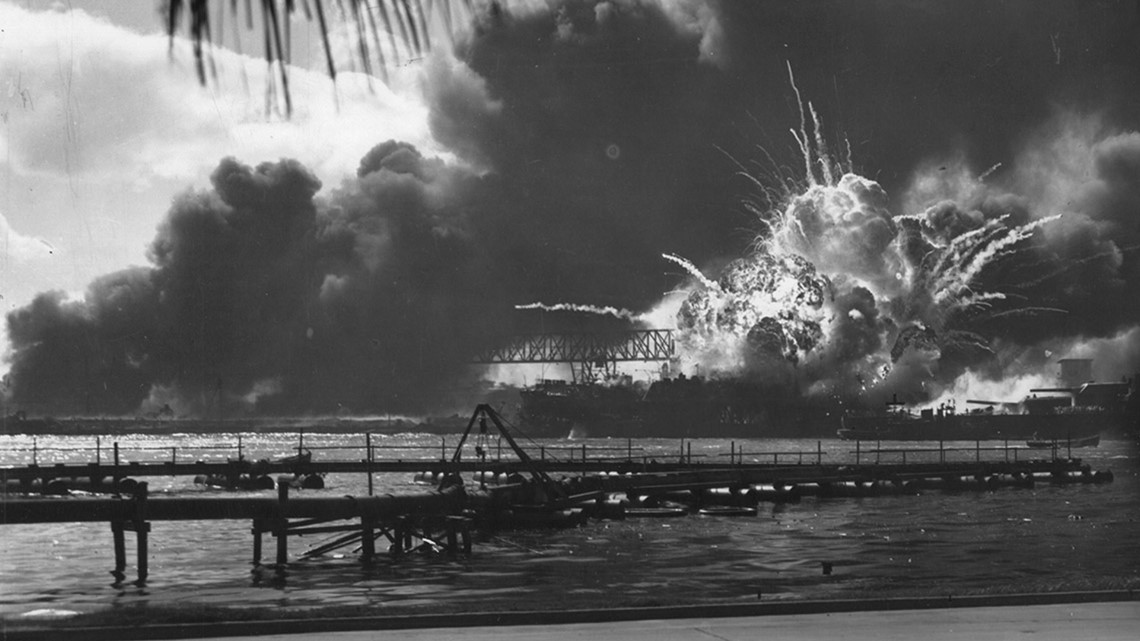
Within hours, martial law was declared. The football team, players and staff, were called into action.
Military historian and Air Force veteran Bill McWilliams explains the Bearcats' swift mobilization, "A military car came by and there was a military officer in the car that stuck his head out the window and he said, 'Have you men been mobilized?' They said no, and he said, 'Well you are now!'
Untrained and unaware, the players were given World War I rifles and metal helmets. Their orders were simple: defend the beach.
McWilliams came across the Bearcats' story while researching for a book. An avid college football fan and West Point graduate, McWilliams pursued the story, chronicling the team's journey before, during, and after that fateful day. In 2019 his book "Scrimmage for War" was published.

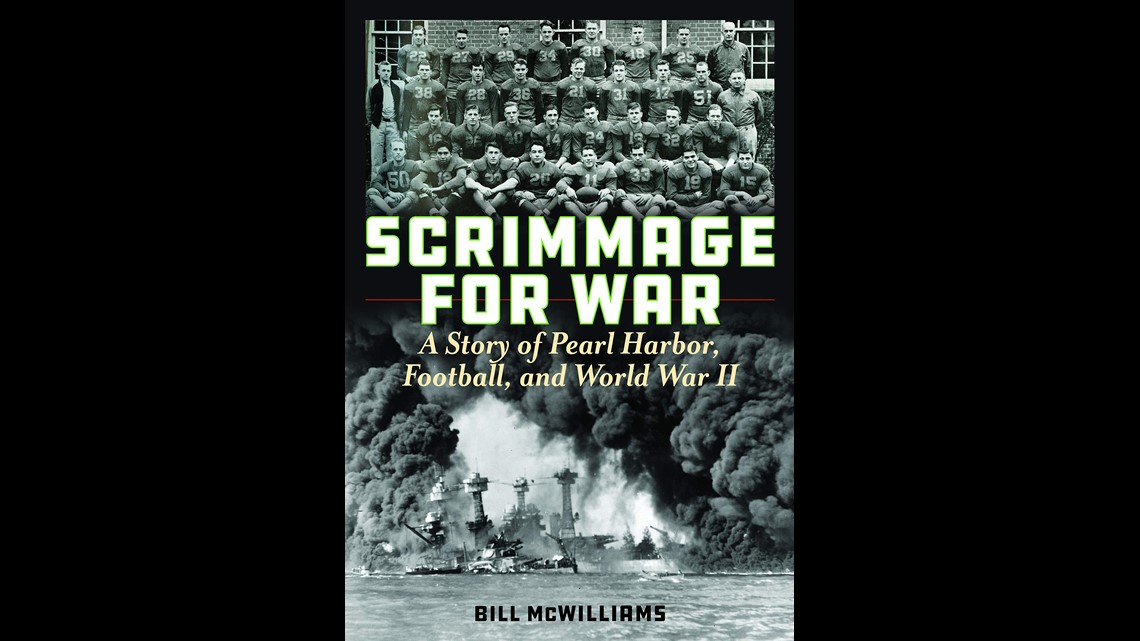
In the days following the attack, leaders feared a land invasion could be coming. With only hours of limited training, led by the team's coach Roy "Spec" Keene, a World War I veteran, the Willamette football team stood guard.
"They were handed wartime duties that had them occupied right up until the time they got onboard to come home. They were having to lay barbed wire and dig firing positions," McWilliams said.
The team stood guard for nearly two weeks before it was safe to evacuate. With only a few hours notice, the men scrambled aboard the SS President Coolidge to return home.
Overcrowded and filled with wounded soldiers, the team did what they could to help around the ship. Some supported medical staff, while others prepared the lifeboats in case of emergency.

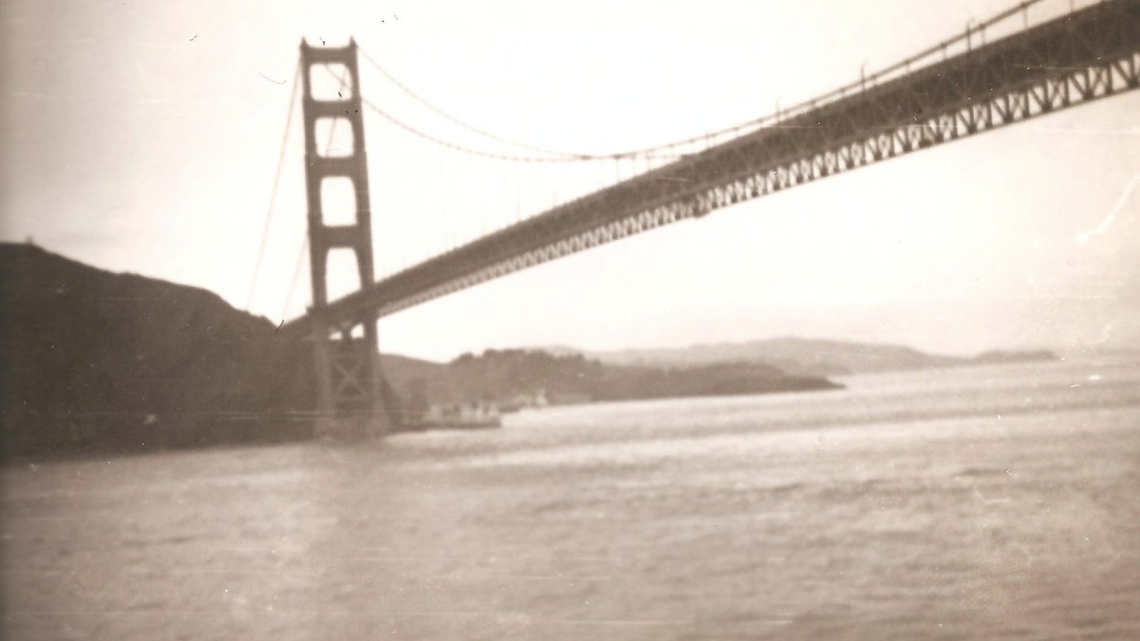
On Christmas Day, 1941, the team arrived in San Francisco. Once there they boarded a train and returned to Salem.
Most of the team would go on to serve in the war but none would forget Dec. 7 — the day they defended their country on the sandy beaches of Waikiki.

